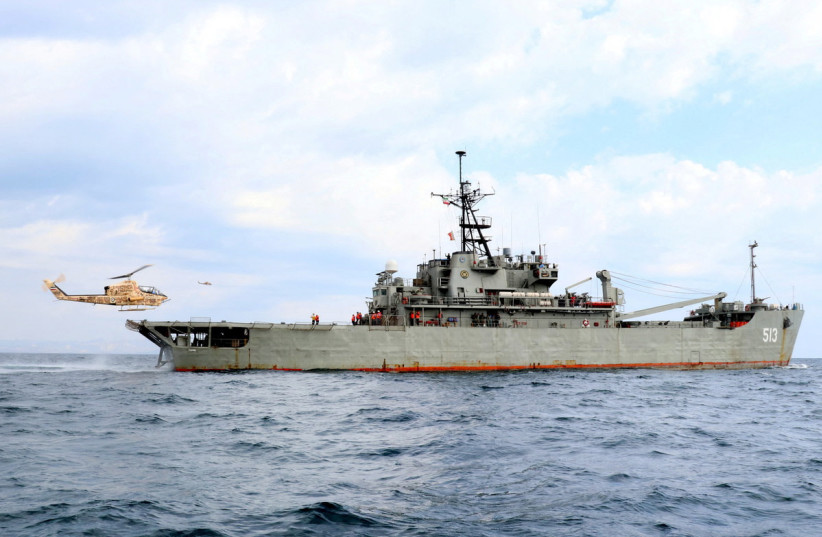Iran’s illegal behavior in the Gulf continues – analysis
Recent reports that the US Navy intervened to stop Iranian Navy ships attempting that were seeking to harass and seize two oil tankers illustrates that Iran’s continued use of naval piracy and other illegal maritime acts in the Gulf of Oman and Persian Gulf is a constant threat. The fact the US was able to intervene this time shows that the US navy and other partners are increasingly concerned.
Iran has been harassing ships and seizing ships since 2019 when it mined ships in the Gulf of Oman off the coast of the UAE. It followed that up with attacks on two ships and then it began seizing ships.
It usually claims to seize ships as retaliation, either for unpaid debts or because of the US and UK harassing Iranian ships abroad. However, Iran uses dangerous and illegal methods such as using armed drones to attack ships and kill crew members.
Recent Iranian naval provocation
According to the CNN report of the recent incident, “an Iranian Navy vessel approached the TRF Moss, a Marshall Islands-flagged oil tanker, in international waters in the Gulf of Oman at approximately 1 am local time, the official said.” A few hours later the Iranians did a similar dangerous action against a commercial ship.
Iran believes it has impunity to do this and it can attack at a time of its choosing against a plethora of ships that have to use these waters. As such the US navy and others are stretched too thin to be able to protect every ship. Recently the US has been using unmanned vessels, basic naval drones, to try to bolster the number of assets in the area.
 An Iranian military ship takes part in an annual drill in the coastal area of the Gulf of Oman and near the Strait of Hormuz, Iran, in this picture obtained on December 31, 2022. (credit: IRANIAN ARMY/WANA (WEST ASIA NEWS AGENCY) VIA REUTERS)
An Iranian military ship takes part in an annual drill in the coastal area of the Gulf of Oman and near the Strait of Hormuz, Iran, in this picture obtained on December 31, 2022. (credit: IRANIAN ARMY/WANA (WEST ASIA NEWS AGENCY) VIA REUTERS)However, these types of systems are new and some are experimental and they are not armed. They can help monitor but there is not much they can do if Iran is serious about seizing a ship.
This presents a real challenge for the US navy and other navies in the region. Iran’s continued use of illegal actions also shows how it is willing to conduct destabilizing activities even as its diplomats work toward diplomatic goals with the Gulf states.





Comments are closed.